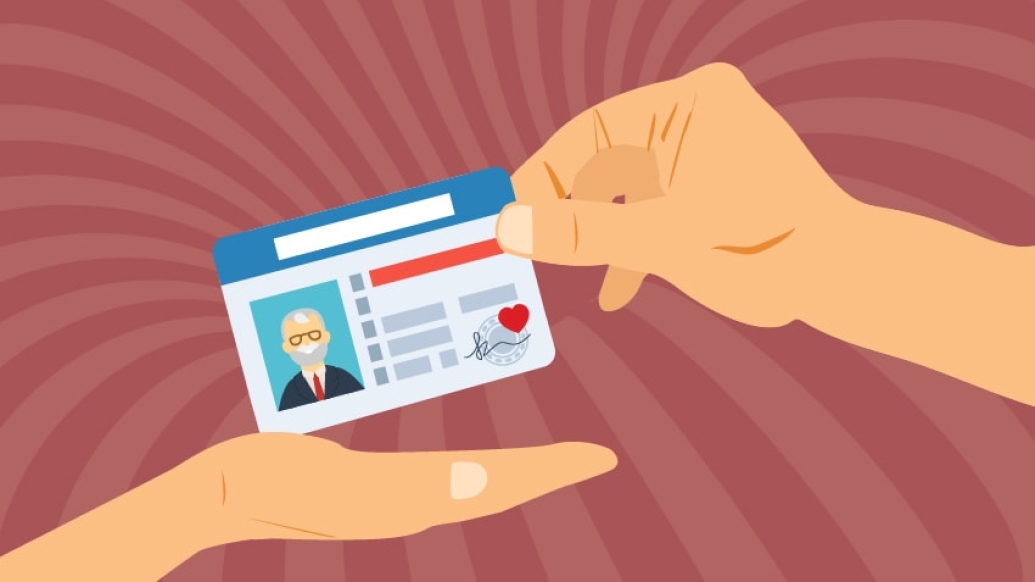Just one-third of older Americans intend to donate their organs, a new study finds. But many more are eligible — even though they might assume their bodies aren’t.
1:00 PM
Author |

Older adults often rule themselves out as organ donors because they assume their age and health status are deal-breakers, a new study shows.
But even in imperfect health, these individuals can help others survive organ failure, heal from burns or see again.
LISTEN UP: Add the new Michigan Medicine News Break to your Alexa-enabled device, or subscribe to our daily audio updates on iTunes, Google Play and Stitcher.
Recently, about 1,200 adults ages 50 and older attending health workshops hosted by the National Kidney Foundation of Michigan (NKFM) were asked about organ donation. Only 37 percent said they intended to be organ donors.
"Their low intention to donate may be driven by the misconception that they're too old and not healthy enough to make a difference," says Caitlin Loughery, lead study author and senior program coordinator at the foundation.
Loughery, along with organ donation advocates and University of Michigan public health researchers, published the study in Archives of Transplantation.
For more than a decade, researchers from the NKFM, the U-M School of Public Health and Gift of Life Michigan's Minority Organ and Tissue Transplant Education Program have looked for ways to personalize their organ donation outreach.
About 62 percent of adults in Michigan are on the Michigan Organ Donor Registry. Adding more people to the list can increase the number of organs available and shorten the wait times for those who need a new heart, lung, liver or kidney to live.
Registering is the first step to being eligible, and any age is the right age to sign up.Pratima Sharma, M.D.
Study findings highlight a need to encourage organ donation consent among older adults. Social media and online messaging have led to some success in increasing organ donation, but most older adults still are not using Facebook, Twitter and Instagram.
Beyond increasing organ donation rates, the researcher consortium is learning what keeps some groups from registering.
"We were focused on the idea that people with chronic disease were unnecessarily discouraged and had a notion: 'Because my kidneys are bad, they don't want my eyes,'" says study co-author and health promotion expert Ken Resnicow, Ph.D., professor of health behavior and health education at U-M.
Of older adults as organ donors, he notes, "their organs and tissue are quite desirable."
Spreading the word
The current study stems from baseline data gathered for Leave a Legacy of Life, a clinical study that began in 2014 and evaluated the effectiveness of providing peer education about organ donation to people ages 50 and older with a chronic health condition.
Within the surveyed group, misconceptions were high: Half did not believe anyone can be an organ donor — regardless of their age or medical condition. Most in that poll had hypertension or diabetes.
MORE FROM THE LAB: Subscribe to our weekly newsletter
"Our findings indicate a need for increased intervention among older adults, many of whom could be organ and tissue donors but nonetheless erroneously believe they are not candidates to donate," says study co-author Ann M. Andrews, senior program manager at NKFM.
In the survey, well-educated whites and women ages 50 and older were most open to organ donation. Older blacks were not as positive about organ donation, which may stem from a long-standing mistrust of the medical system.
Still, progress is being made. The Michigan consortium has successfully worked with churches, hair salons and sororities and fraternities to overcome racial barriers and increase organ donation in the black community.
Health workshops led by a peer may also be an effective tool as advocates address the barriers of age and chronic illness.
Although it is difficult to say beforehand if an adult can donate his or her organs, eyes or tissue, the motivation to donate must come first.
"Registering is the first step to being eligible, and any age is the right age to sign up," says study co-author Pratima Sharma, M.D., a liver transplant specialist at Michigan Medicine.
To learn more about organ donation or to register as an organ, eye and tissue donor, visit Gift of Life of Michigan.

Explore a variety of healthcare news & stories by visiting the Health Lab home page for more articles.

Department of Communication at Michigan Medicine
Want top health & research news weekly? Sign up for Health Lab’s newsletters today!





